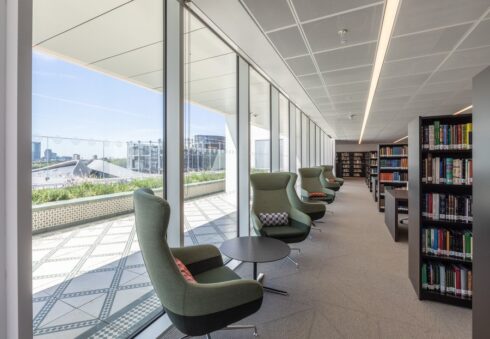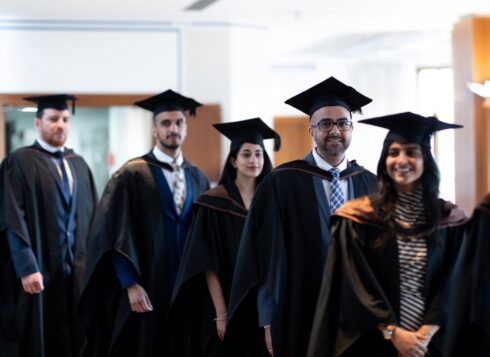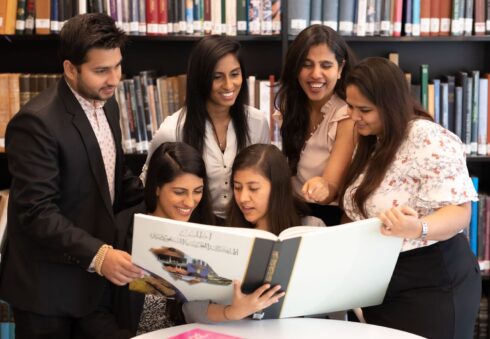FAQs
If you have questions about applying for GPISH please take a look at the frequently asked questions (FAQs) below, or contact IIS Admissions.

Entry requirements and eligibility
All candidates must have completed a first degree of good standing from an accredited university, equivalent to a British Bachelor’s degree. This is usually a three- or four-year degree, but varies depending on country, institution and discipline. Candidates are expected to have achieved the equivalent of a UK 1st or 2nd Class Honours degree, with a preference for Upper 2nd (2:1) Class results or higher (usually equivalent to a GPA of at least 3-3.3 out of 4). Candidates will be expected to meet SOAS postgraduate entry criteria.
Proof of English language proficiency is also required, either in the form of a valid IELTS or other official certificate of English language proficiency. Visit Entry requirements page for details on accepted tests, scores and subscores.
We use UK ENIC (the UK national agency for the recognition of international qualifications) to determine equivalency to UK qualification levels. You can compare non-UK qualifications to the UK system by contacting UK ENIC. Please note, this may incur a cost to you. The IIS will only check degree equivalency once applications have been submitted and cannot confirm candidates’ qualifications are eligible prior to application.
Yes, you can still apply, so long as you expect to complete your degree in time to receive a final transcript by mid-June 2025 in order to apply for a UK visa. This timeline is important to check with your awarding institution, as you will not get a UK visa without a full degree transcript.
When you apply for GPISH you can submit an interim transcript detailing modules taken to date and let us know when you will receive your final transcript. If you are accepted onto the programme, your offer of acceptance will be conditional upon successful completion of your degree and upon meeting any minimum grade requirements set by the selection committee. Your final official transcripts and certificates will need to be submitted to the IIS by the middle of June to begin your visa application process.
You will be required to take an English language test unless you are a national of a majority English-speaking country (as defined by UKVI), or have completed a degree on-campus (not via distance learning) in the following countries, a maximum of two years before the start of the GPISH programme: Antigua and Barbuda, Australia, Barbados, the Bahamas, Belize, Dominica, Grenada, Guyana, Republic of Ireland, Jamaica, New Zealand, St Kitts and Nevis, St Lucia, St Vincent and the Grenadines, Trinidad and Tobago, the United Kingdom, and the United States of America.
If you are a national of Canada, you are also exempt from taking the test. If you have completed an undergraduate or postgraduate degree in Canada and are not a Canadian national you will be required to take the test.
Yes, you will still have to prove your English language proficiency. Completing a module, term, semester, or year in an English-speaking country does not exempt you from the English language requirement.
Yes, you will still have to prove your English language proficiency. The English language requirement is only waived if you studied for a degree on campus in an English-speaking country (as defined by UKVI).
Applicants must submit an IELTS (Academic) score with their application. Any IELTS (Academic) test must have been taken no more than two years before the proposed start date of the programme being applied for. The minimum requirements for English language proficiency are as follows:
An overall band score of 6.5, with a minimum score of 6.0 in each component in an IELTS (Academic) test certificate. Please select “The Institute of Ismaili Studies” as receiver of your scores when registering for IELTS (where applicable).
Alternatively, applicants can submit scores from the following English language tests:
- TOEFL iBT with an overall score of 92 and a minimum of 24/30 for Reading & Writing, and 20/30 for Speaking & Listening.
- PTE Academic with an overall score of 62 and a minimum of 59 in Communicative Skills Papers.
- Cambridge English CAE/CPE with an overall score of 176 and a minimum of 169 in each sub- test.
- Trinity ISE III with a Standard in all sub-tests.
Yes. The IIS will not accept or consider your application for GPISH unless you have provided an accepted certificate of English language proficiency prior to the deadline.
The consistency of your name on all documentation is very important and it is imperative that your name is always spelled and written exactly the same on all formal documents which includes your passports, evidence of previous qualifications and Academic English Skills certificate. Should you have any discrepancies, you will need to provide an affidavit with your application. This affidavit should confirm all variations of your name are of the same person.
Application process
Applications are submitted online via our application portal, accessible on the GPISH page. You will be required to register your details and complete an online form, as well as upload the necessary documents. Postal applications are only accepted in very exceptional circumstances; please email admissions@iis.ac.uk to discuss options.
As part of the online application form, you will be asked to enter contact details for three academic references and one character reference (who should ideally be someone with an official role in a Jamati institution). The application system will automatically send requests by email to your nominated referees. We recommend you also follow up to remind them of the application deadline and ensure that they submit reference letters by that deadline or as soon as possible thereafter.
Once your application has been received you will receive an email confirming your submission. The admissions process takes three to four months after the application deadline, during which you will be updated by email after each stage (see “How do you assess my application?” below).
Once your application has been received, it will be processed (providing it is complete) and assessed by relevant staff at the IIS in several stages.
Stage 1: Admissions staff will check that your application is complete and that your qualifications and English language test results meet the minimum requirements for admission to GPISH. Please note that your application will be rejected automatically at this stage if anything is missing.
Stage 2: Your application will be reviewed by a committee of IIS faculty. To assess your suitability for the programme (see “What criteria are used to assess my suitability?” below), the committee will look at:
- your university degree grade
- the grades achieved in individual units/components of your degree
- your English language test results
- your references
- your personal statement
- your sample of academic written work
- your record of service to the community
The outcome of this review will be communicated to you by mid-February 2025.
Stage 3: If you are shortlisted, the IIS will organise an Entrance Exam which will take place in late February, normally at your local ITREB office.
Stage 4: The final stage is a panel interview, normally conducted via Zoom. This interview will be organised in mid-March 2025.
Final decisions on the award of scholarships are made by the IIS’ scholarships committee, in consultation with the interview panel and national ITREBs. Information supplied by candidates may be shared with ITREB partners as part of this consultation process for identification purposes only.
You will be informed as soon as all final selection decisions have been made. It is likely that all decisions and offers will be communicated by mid-April 2025.
Your application will be considered as a whole, together with your reference letters and an ITREB reference sought by the IIS, as well as your Entrance Exam and Interview if you progress through all stages of the assessment process. The following core criteria will be considered:
- Interest in the entire Programme.
- Potential for studying Islamic Studies and the Humanities.
- Motivation (as distinct from enthusiasm).
- Leadership potential and skills.
- Community empathy, engagement, and potential for future contributions.
- Broad and engaged appreciation for Islamic Studies and the Humanities.
- Behaviours which indicate a considered vision for your future career path.
Since there are a limited number of places available each year (usually 11), your application will be assessed in relation to other applicants. The selection process also seeks to promote diversity in the accepted cohort in respect to nationality, gender, prior experience and academic interests.
Yes. However, each programme has distinct aims. Therefore, you are encouraged to think very carefully before applying about how either programme would meet your academic and career goals. In reviewing your application(s), the respective selection committees will be looking for your ability to make a strong case for your decision to apply to a particular programme.
GPISH scholarships are currently offered for the duration of our two-year MA in Islamic Studies and Humanities at the IIS and cannot be used for study at any other institution. The IIS no longer offers scholarships for Master’s-level study elsewhere, except as part of the Secondary Teacher Education Programme (STEP) which includes a PGDip component at UCL. For those looking to progress to PhD-level study, the IIS offers doctoral scholarships to support research on topics related to any of the Institute’s core research areas.
Candidates seeking support for graduate study in other fields are encouraged to consult the Aga Khan Foundation’s website for details of their International Scholarship Programme.
If you have any complaints relating to the admissions process, please see our Complaints Policy which is available on the IIS website under ‘Policies and Documents’.
Studying in London
Students reside in Victoria Hall, the accommodation in King’s Cross. Located minutes away from the King’s Cross Rail and Tube station, in the heart of London, the building has 198 bedrooms all designed to enhance students’ experience of living and studying. Designed by award winning Stanton Williams Architects, the building offers a number of amenities such a reception, reading rooms, communal kitchens, a gym, a roof terrace and a courtyard. The cost of living at the residence is covered by the students’ scholarship. You will be provided with a single room. The rooms are based in “cluster flats” with individual rooms, each with its own ensuite shower room. Each cluster has six to eight rooms, with a shared kitchen and living area. All students are required to live in this residence for at least their first full year at the IIS. Find out more on Accommodation from Our facilities page.
Under new UK visa regulations, students are no longer eligible to bring dependents to the UK. Read more from Study in the UK on a Student visa page.
You may be eligible to vote in local and general elections if you qualify under the following criteria:
- You are a UK or Irish citizen
- You are a qualifying Commonwealth citizen resident in the UK You are an EU citizen resident in the UK
A qualifying Commonwealth citizen is someone who has leave to enter or remain in the UK, or does not require such leave. The definition of a ‘Commonwealth’ citizen includes citizens of British Crown Dependencies and British Overseas Territories.





